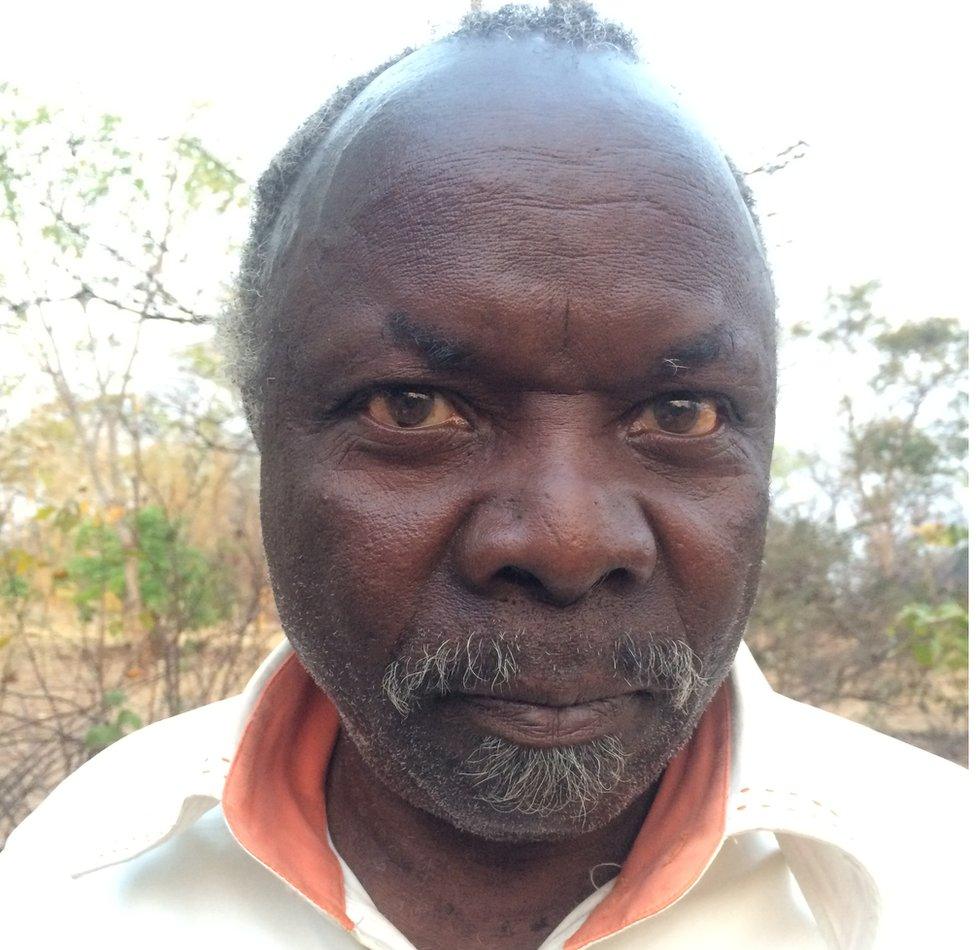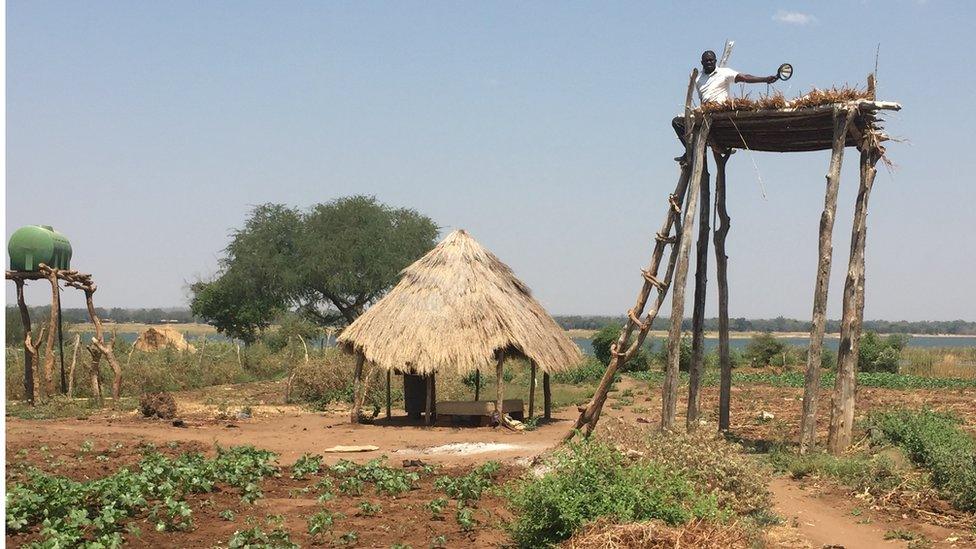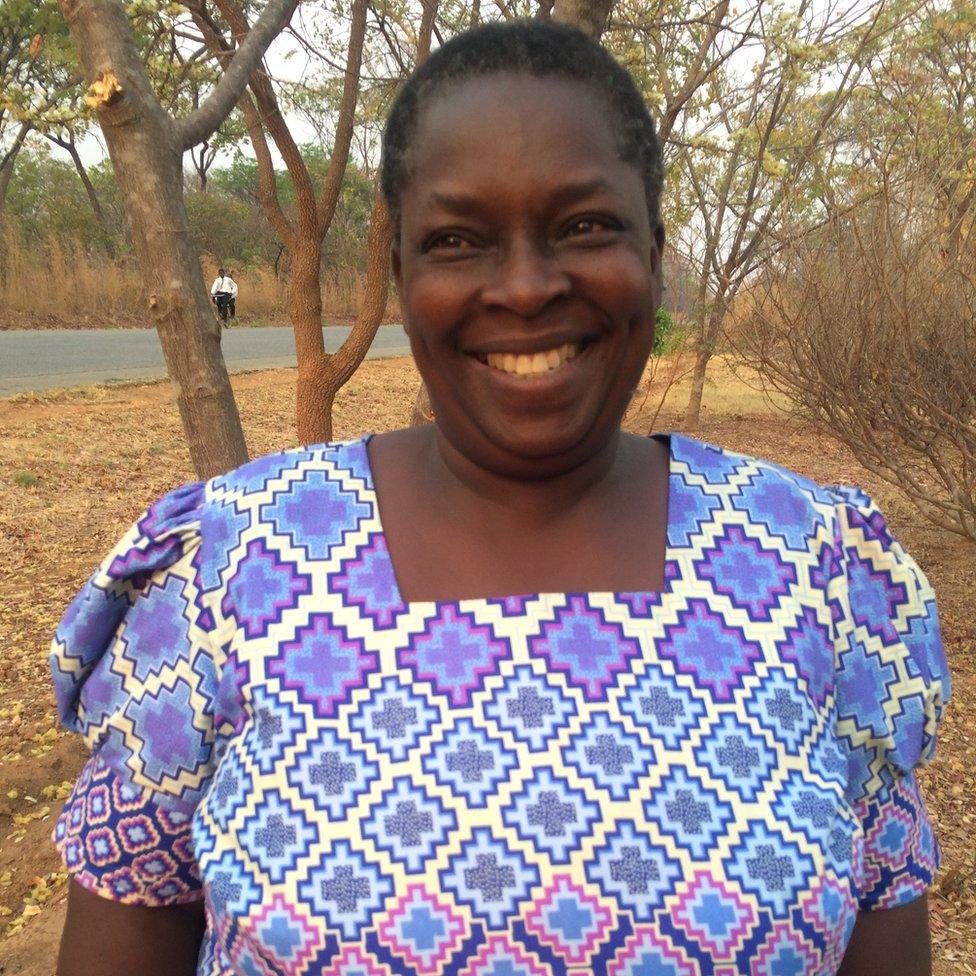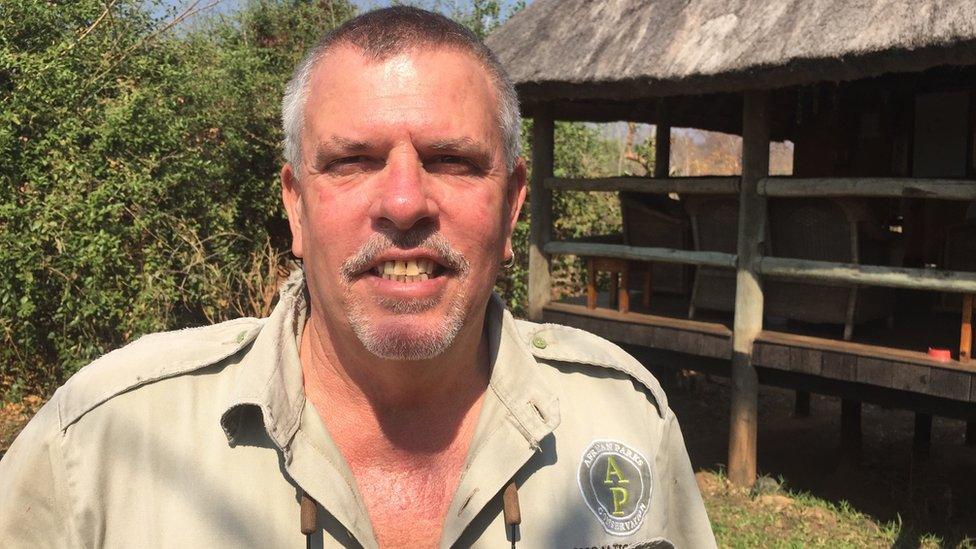Zambia's front line between elephants and humans
- Published
As the Cites conference on endangered species meets in Johannesburg, the BBC's Matt McGrath travelled to Zambia to hear the voices of people with first-hand experience of conflicts between humans and wildlife.

The father who lost his daughter to the elephants

Humphrey Mubita's daughter was killed by an elephant
Humphrey Mubita farms near the Kafue National Park.
Kafue is often said to be the green jewel of Zambia, being its oldest and biggest protected area covering over 22,000 sq km.
When the national park system in Zambia was set up, the authorities decided to designate buffer zones around them, areas in which people live and farm, but also areas in which the animals from the park move freely.
This has had tragic consequences for Humphrey.
"My daughter was going to the clinic in Chunga, on the way she met this elephant. There were five people, but the other four knew where to hide. My daughter was a visitor to the area so she didn't know how to divert…"
Humphrey's daughter was 29 years old and left three children behind. Her case is not an isolated one. Humphrey knows of two other people who have been killed by elephants in the past three years.
The main complaint that Humphrey and others in his area have about the elephants is the lack of compensation from the government - The destruction of crops or people is just a "loss to be borne", as another villager said.
"If an animal kills a person, then that family is not compensated," said Humphrey.
"They are protecting the animals over people. It is not fair."

The farmer who sleeps on a five-metre platform

Okra farmer Kelvin sleeps on a platform to ward off elephants
Kelvin Kapesa is a hardworking farmer with a smallholding that runs up to the edge of the Zambezi river, near the village of Mugarameno. This area is in the buffer zone of the Lower Zambezi National Park.
Okra is Kelvin's main crop, and he lives and works with one eye on the horizon. Elephants are very active at this time of the year because they have stripped all the foliage from the trees deep in the national park.
"Sometimes in a week they come three times. If they don't have enough food in the bush they come anytime. I have no break!" he complains.
To cope with the problem, Kelvin now sleeps on a wooden platform about five metres high, with a range of instruments to scare them away.
"At night, people used to beat drums and use flashlights. I used to whistle but now I have a vuvuzela to scare them away,"
However the impact can be limited.
"New elephants run away but the old one, he doesn't run."
Kelvin says that he has a simple message for the people meeting at Cites in Johannesburg. Money for fencing!
"If they can come up with electric fences around our fields that would be good, that plan is good," he says.
"If we can fence the fields, and can protect our homes from the elephants - we can be friends."

The woman with a plan…

Mrs Hayumbu has a plan to help farmers plagued by elephants
A tarmac road is all that separates Namukulo Munalula Hayumbu from the Kafue National Park.
Her 50-hectare farm is located in the buffer zone or Game Management Area (GMA) just across from the park. She is one of the 33,000 people who now live in the GMA.
Conflicts with endangered species such as elephants and lions are part of the way of life. People are angry about the constant feeling that animals matter more to the government than the people who are impacted by them.
She understands why the "courageous ones go across the road at night to hammer one or two for the pot," but poaching is not the solution she says.
Mrs Hayumbu has a detailed plan.
"The government is not doing much, we need fencing of the park and also to allow farmers to fence their fields," she says.
"We need an insurance scheme and we in the GMA should contribute to this so in case of loss of life or loss of crop we should be compensated."
But with a rapidly growing population and a government with many other priorities, ending the human-wildlife conflicts in Kafue may take a while.
"We should co-exist, we appeal to the government to come up with policies which would allow us to co-exist," Mrs Hayumbu adds.

The park ranger bridging the divide…

Conservation Lower Zambezi's Ian Stevenson says community support is crucial
Ian Stevenson rushes off to a small airstrip near the Zambezi river, eager to take to the air.
The plane is just one part of the logistical support role that his organisation, Conservation Lower Zambezi (CLZ), provides to the government-run park rangers.
As well as the plane, CLZ helps with communications with rangers in the field, provides equipment and is training a dog team to intercept shipments of ivory.
But despite these significant efforts to aid the park ranger in the fight against poaching, Ian and his colleagues don't always feel the love of the local population.
"You can go into the community and see someone who's had his crops wiped out last night and they will say they see no benefits, and they have no interest in having elephants here," he says.
"It's very mixed. I do think people understand that without this wildlife they would not have the same opportunities as they do with it, that's very hard to tell someone who lost their crops last night. But there's no magic fix."
The CLZ efforts are focused on short-term fixes such as supporting the rangers, but the longer term is also key, and that's about education and ensuring that communities see and feel the benefits of conservation.
But the pressures of poaching mean that there may not be a long term. Right now support organisations like CLZ are having to spend millions of dollars in a race with organised criminal gangs intent on hunting down the elephants.
Ian says that curbing demand for ivory on a global scale needs to happen. And fast.
"I hope we can keep it up, if the resources can be sustained, you may get donor fatigue," he admits.
"The only thing that will really work in the end is changing the whole mentality of a culture around the world."
Follow Matt on Twitter @mattmcgrathbbc , externaland on Facebook.